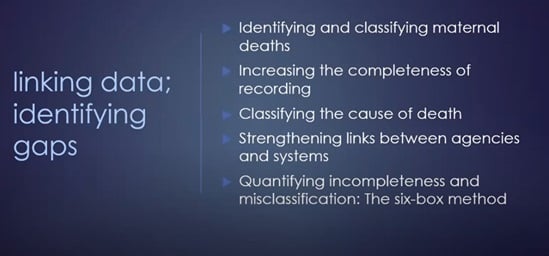Maternal health
Maternal health refers to the health of women during pregnancy, childbirth and the postnatal period.
Each stage should be a positive experience, ensuring women and their babies reach their full potential for health and well-being.
Although important progress has been made in the last two decades, about 287 000 women died during and following pregnancy and childbirth in 2020. This number is unacceptably high.
The most common direct causes of maternal injury and death are excessive blood loss, infection, high blood pressure, unsafe abortion, and obstructed labour, as well as indirect causes such as anemia, malaria, and heart disease.
Most maternal deaths are preventable with timely management by a skilled health professional working in a supportive environment.
Ending preventable maternal death must remain at the top of the global agenda. At the same time, simply surviving pregnancy and childbirth can never be the marker of successful maternal health care. It is critical to expand efforts reducing maternal injury and disability to promote health and well-being.
Every pregnancy and birth is unique. Addressing inequalities that affect health outcomes, especially sexual and reproductive health and rights and gender, is fundamental to ensuring all women have access to respectful and high-quality maternity care.
About 140 million births take place every year and the proportion attended by skilled health personnel has increased: from 58% in 1990 to 81% in 2019. This is mostly due to larger numbers of births taking place at a health facility.
Deaths from complications during pregnancy, childbirth, and the postnatal period have declined by 38% in the last two decades, but at an average reduction of just under 3% per year, this pace of progress is far too slow.
It also hides vast inequalities within and across countries.
More than half of maternal deaths occur in fragile and humanitarian settings. Sub-Saharan Africa and Southern Asia share the greatest burden of maternal deaths, 86% of the global total in 2017.
The Sustainable Development Goals (SDGs) offers an opportunity for the international community to work together and accelerate progress to improve maternal health for all women, in all countries, under all circumstances.
SDG targets for maternal health include 3.1, aiming for an average global ratio of less than 70 deaths per 100 000 births by 2030, and 3.8, calling for the achievement of universal health coverage. These cannot be achieved without reproductive, maternal, newborn and child health coverage for all.
Improving maternal health is one of WHO’s key priorities, grounded in a human rights approach and linked to efforts on universal health coverage.
WHO advocates for health planning where women’s values and preferences are at the centre of their own care. Meaningful engagement and empowerment of women, families, communities, and providers is essential for quality improvement initiatives.
Promoting health along the whole continuum of pregnancy, childbirth and postnatal care is also crucial. This includes good nutrition, detecting and preventing diseases, ensuring access to sexual and reproductive health and supporting women who may be experiencing intimate partner violence.
It is WHO’s responsibility to monitor progress towards the global goal for reducing maternal death (SDG target 3.1). WHO generates data, research, clinical guidelines and programmatic tools to support achievement of global targets and evidence-based strategies for ending preventable maternal mortality (EPMM) and improving maternal health and well-being.
WHO supports Member States as they implement plans to promote access to quality health services for all. Strong partnerships are crucial, such as The Network for Improving Quality of Care for Maternal, Newborn and Child Health, launched by WHO and UNICEF.











